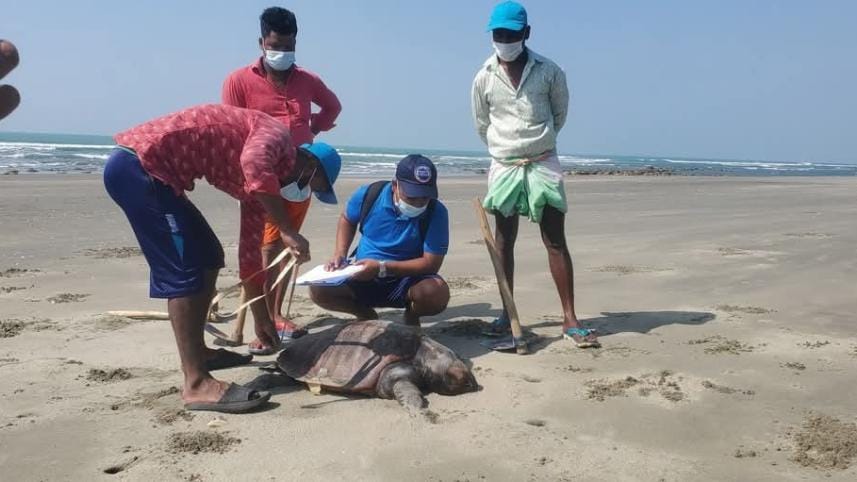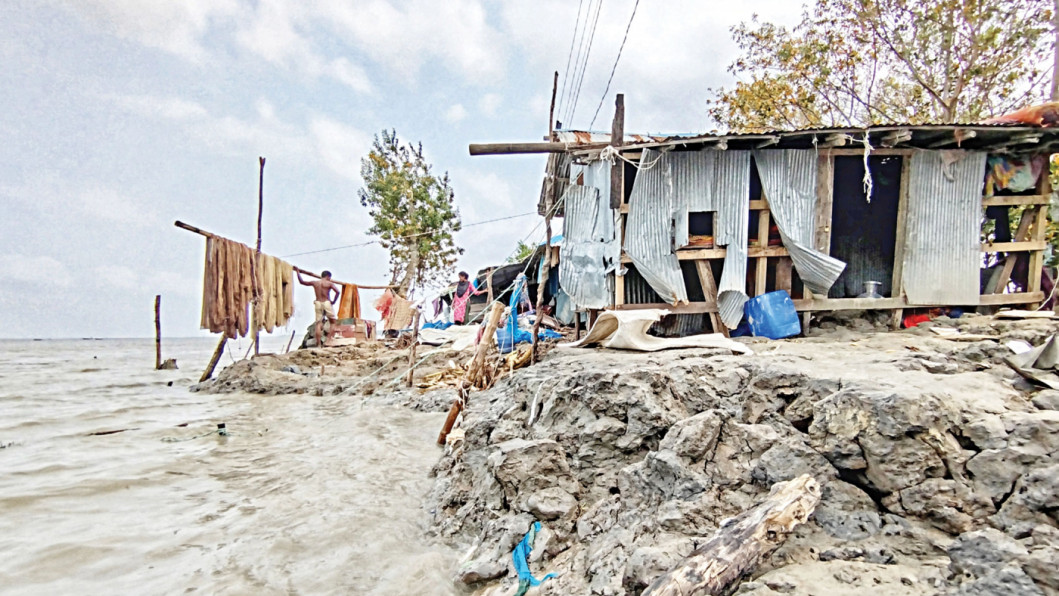Sustainable tourism requires greater environmental stewardship

Sustainability is undeniably one of the most crucial issues for our rapidly changing world as it is vital for our survival and essential to preserving the planet for future generations. Hence, it is at the centre of the 17 Sustainable Development Goals adopted by all UN member-states in 2015.
Tourism is a rapidly growing industry globally, contributing 10 percent to the global gross domestic product (GDP). In Bangladesh tourism is increasingly playing a remarkable role by contributing around three percent to our GDP. The contribution is projected to increase in the coming years. However, with growing environmental concerns, sustainability and resilience of this industry have emerged as one of the biggest issues.
Established by the United Nations General Assembly in 2023, February 17 is observed as Global Tourism Resilience Day. The aim is to raise awareness of the importance of sustainable tourism amid escalating environmental concerns.
Ours is a land of natural diversities and attractions including the Sundarbans mangrove forest and the world's longest natural sea beach Cox's Bazar. We have an immense possibility to be a renowned tourist destination globally. But the fact remains that less than five percent of our tourists is international.
While our economy needs to expand tourism sites and create more economic opportunities, it is also crucial to minimise the environmental concerns arising along with it. For example, there has been an alarming surge in the number of dead sea turtles found along the beaches of Marine Drive in Cox's Bazar recently.
According to Nature Conservation Management (NACOM), the number of sea turtle breeding sites along the Cox's Bazar coastline significantly decreased. This decline is attributed to the increasing human activity and tourist presence which pose serious threats to the turtle's habitats resulting in further loss of the coastal and marine biodiversity.
The ecosystem along Marine Drive is incredibly diverse. It has a unique natural ambiance and is ecologically critical. This area is home to a wide variety of coastal flora and fauna, tropical green forests, pristine hills, delicate coastlines, and localities rich in cultural heritage. In Teknaf, certain areas have long been designated as Ecologically Critical Areas (ECA) due to their environmental significance.
However, the construction of highways and the increased human footprint have put the coastal habitats of many species under threat. The ecosystem has already been exposed to numerous dangers, including habitat destruction and pollution. The nesting sites for offshore sea turtles along the coastlines have been particularly endangered. Historically, the entire coastline from Sonadia in Maheshkhali to Saint Martin's Island served as vital nesting grounds for sea turtles. Now the region is bustling with tourists and fishermen even during the high breeding season. With the growing pressure, this fragile ecosystem will face even greater risks in the coming years.
In 2022, the Ministry of Environment, Forest and Climate Change declared Saint Martin's Island a "Marine Protected Area" (MPA) to safeguard the island and the marine biodiversity of its surrounding areas. From February 1, 2025, the ministry has put a nine-month-long travel ban for tourists on the island. This measure aims to address the environmental degradation caused by over-tourism.
The same thing happened to the 85-kilometre-long Marine Drive, inaugurated in 2017 stretching from Kolatoli in Cox's Bazar to Subrang in Teknaf. Numerous popular tourist spots have already developed along this route, and much of the land on both sides of the road has been acquired by individuals, local businesses, and multinational companies. Increasingly, tourists are flocking to the Marine Drive, which winds through mountains and beaches. In the face of escalating climate impacts, eco-based sustainable tourism along the Marine Drive will be key to protecting the ecosystem, biodiversity, local culture, and ensuring the well-being of local communities.
Globally, eco-tourism and nature-based tourism are becoming increasingly popular. To attract more international tourists and to protect nature, we must prioritise building eco-friendly infrastructures that have minimal impact on the environment and ecosystem. Eco-tourism emphasises less concrete, more greenery, open spaces, cleanliness and greater care for nature and habitats for species. This approach will also enable local communities to preserve their natural and cultural heritage while benefiting from tourism.
It is time to put forward comprehensive planning and well-thought-out regulations for the development of eco-friendly tourism facilities along the Marine Drive. Additionally, creating safe spaces for turtle breeding and other species is crucial. Last year, the Bangladesh Ocean Research Institute (BORI) declared a 2.91-kilometre stretch known as Bori Beach off-limits to tourists. However, this beach, which extends from Sonarpara to Reju Canal in Cox's Bazar, is located in a highly populated area. Therefore, BORI's strategy of restricting this area to tourists will not have much impact and will not address the broader issue of protecting biodiversity.
Given the 85-kilometre length of Marine Drive, can we not dedicate a 5–6 kilometres beach section, possibly in the Teknaf area, to conserve habitats for coastal marine lives? This would significantly contribute to protecting the ecosystem and ensuring the conservation of various marine species, including sea turtles.
Massive concretisation is not sustainable development. We should not make the Marine Drive another concrete jungle like Kolatoli, Cox's Bazar.
Parvez Uddin Chowdhury is a development worker and climate enthusiast.
Views expressed in this article are the author's own.
Follow The Daily Star Opinion on Facebook for the latest opinions, commentaries, and analyses by experts and professionals. To contribute your article or letter to The Daily Star Opinion, see our guidelines for submission.




 For all latest news, follow The Daily Star's Google News channel.
For all latest news, follow The Daily Star's Google News channel. 
Comments